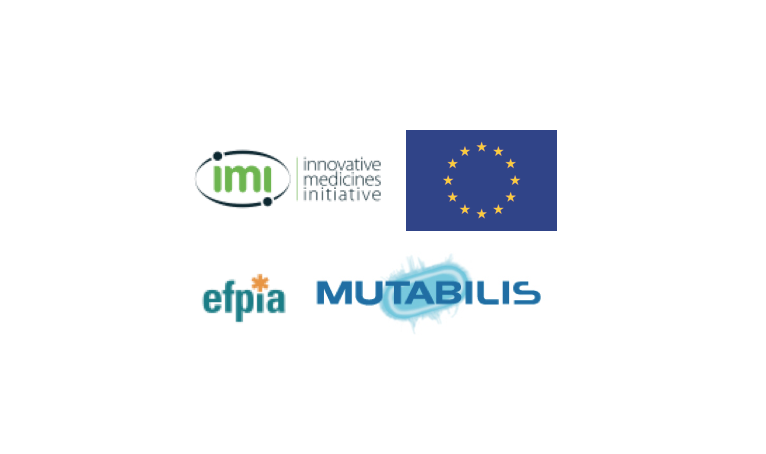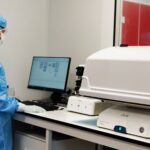Share this post:

Biocitech, Paris, France, October 17, 2017 – Mutabilis, a company specialized in the discovery of new therapeutic approaches to treat resistant bacterial infections, today announces its selection by the European ENABLE project (European Gram-negative Antibacterial Engine), which aims to improve the development of antibiotics against infections caused by multiresistant Gram-negative bacteria.
The European Commission and the EFPIA (European Federation of Pharmaceutical Industries and Associations) launched the Innovative Medicine Initiative (IMI) in 2008, with the aim of speeding up the development of new medicines. The initiative includes a designated program titled ‘New Drugs for Bad Bugs’ (ND4BB) for fighting antibiotic resistance in bacteria. With an overall budget of more than €88 million ($104M) for the period from 2014 to 2020, ENABLE, the third ND4BB project, specifically aims to combat infections caused by Gram-negative bacteria. Successful applicants receive financial support as well as access to the research platform, enabling close collaboration between public research laboratories and private enterprises to accelerate the discovery and development of new antibiotics through to Phase I trials.
Antibiotic resistance is a major public health concern resulting in an increase in complications, in the length of time spent in hospital and in the number of deaths. Its public cost is extremely high. There is an urgent need for new antibacterial medicines. Only two new classes of antibiotics have reached the market in the last 30 years and there are very few new molecules in R&D, particularly for Gram-negative bacteria.
Mutabilis is working on Dabocillins, a family of innovative compounds that specifically target PBPs (Penicillin-Binding Proteins). These new antibiotics have a crucial advantage over the beta-lactams in that they are impervious to beta-lactamase-induced resistances. They are effective against Gram-negative bacteria such as carbapenem-resistant Enterobacteriaceae (CRE) and potentially, P. aeruginosa. Under the ENABLE consortium arrangement, 75% of expenditure incurred up to Phase I trials will be reimbursed, throughout the period of collaboration. In addition to this financial support, Mutabilis has access to the research platform’s technical resources and benefits from its specialists’ expertise.
“We joined ENABLE in July this year. Securing this grant is a clear recognition of the quality of our innovative research,” said Dr. Stéphane Huguet, Chairman of Mutabilis. “In accessing its platform of services and receiving the advice of specialists in the field, we have a fantastic opportunity to speed up the development of our compounds and secure the company’s future.”
“We welcome the Mutabilis program into the Innovative Medicines Initiative ENABLE project. Mutabilis brings a series of promising molecules into the ENABLE antibacterial pipeline that will be developed further in a public-private partnership context. We look very much forward working with the team from Mutabilis”, said Anders Karlén, Leader of the Managing entity at ENABLE, and professor at Uppsala University.
“We believe that this collaboration in a public-private partnership context is an excellent way to develop novel classes of antibiotic drugs,” said Neil Pearson, project coordinator at ENABLE and Director of Medicinal Chemistry at GlaxoSmithKline.
ND4BB’s ENABLE project received funding from the IMI JU (Innovative Medicines Initiative Joint Undertaking) via Grant Agreement No. 115583. The funding comprises a financial contribution from the 7th European Framework Programme for Research and Technological Development (FP7/2007-2013), and contributions in kind from companies that are part of the EFPIA (European Federation of Pharmaceutical Industries and Associations).
About ENABLE
Launched in early 2014, ENABLE is a project within the ND4BB program working to advance the development of potential antibiotics against multidrug resistant Gram-negative infections. ENABLE has been highlighted as a potential collaborator in the US National Action Plan for Combating Antibiotic-Resistant Bacteria report issued by the White House in March 2015. http://nd4bb-enable.eu/
About ND4BB
IMI’s New Drugs 4 Bad Bugs (ND4BB) program represents an unprecedented partnership between industry, academia and biotech organizations to combat antibiotic resistance in Europe by tackling the scientific, regulatory and business challenges that are hampering the development of new antibiotics. It is made up of seven projects, including ENABLE. http://www.nd4bb.eu/
About IMI
The Innovative Medicines Initiative (IMI) is working to improve health by speeding up the development of, and patient access to, innovative medicines, particularly in areas where there is an unmet medical or social need. It does this by facilitating collaboration between the key players involved in healthcare research, including universities, the pharmaceutical and other industries, small and medium-sized enterprises (SMEs), patient organizations and medicines regulators. IMI is a partnership between the European Union (represented by the European Commission) and the European pharmaceutical industry (represented by EFPIA, the European Federation of Pharmaceutical Industries and Associations). http://www.imi.europa.eu/
About Mutabilis
Mutabilis is a spin-off from INSERM that was created in August 2001 and is specialized in the discovery of new therapeutic approaches for treating bacterial infections. Its aim is to provide new solutions for satisfying major medical needs by developing breakthrough innovations in the area of anti-infectives.
The company has been a subsidiary of Pharma Omnium International since 2009. http://www.mutabilis.fr/
About Pharma Omnium International
Pharma Omnium is a French pharmaceutical company that markets mature drugs in various therapeutic classes, including the nervous system, anesthesia, hormone products, oncology and rheumatology, some of which are market leaders. Pharma Omnium is an excellent platform for acquiring and integrating research programs.
To download documents, you can right-click on the links above and chose « Save link as… »




